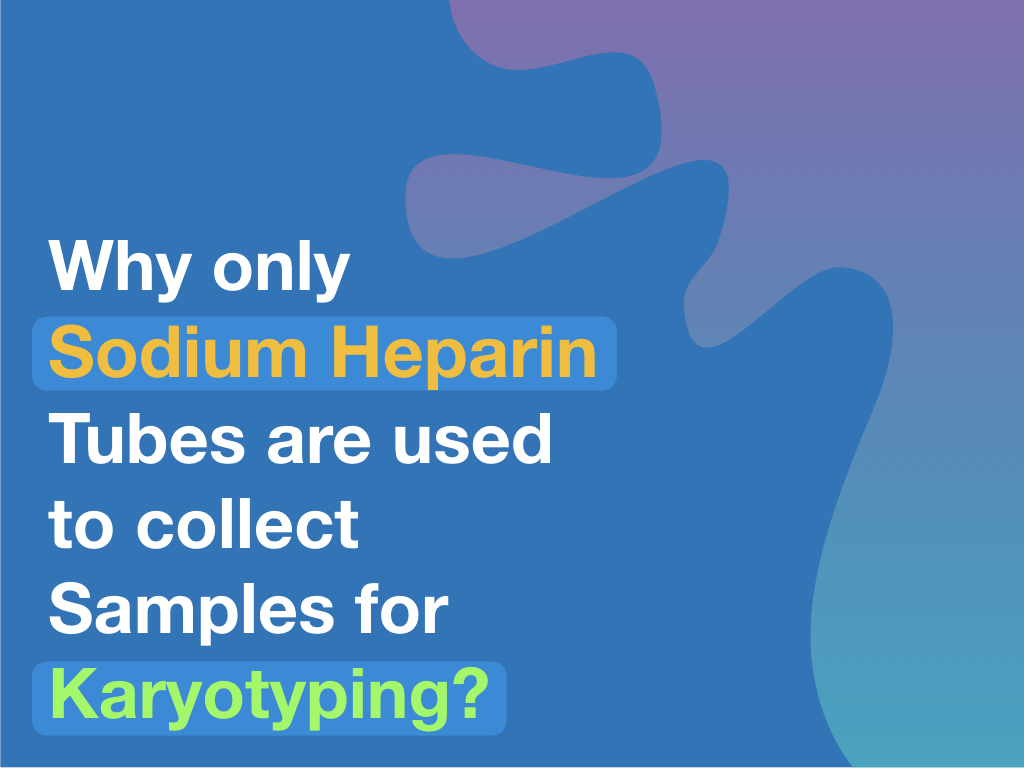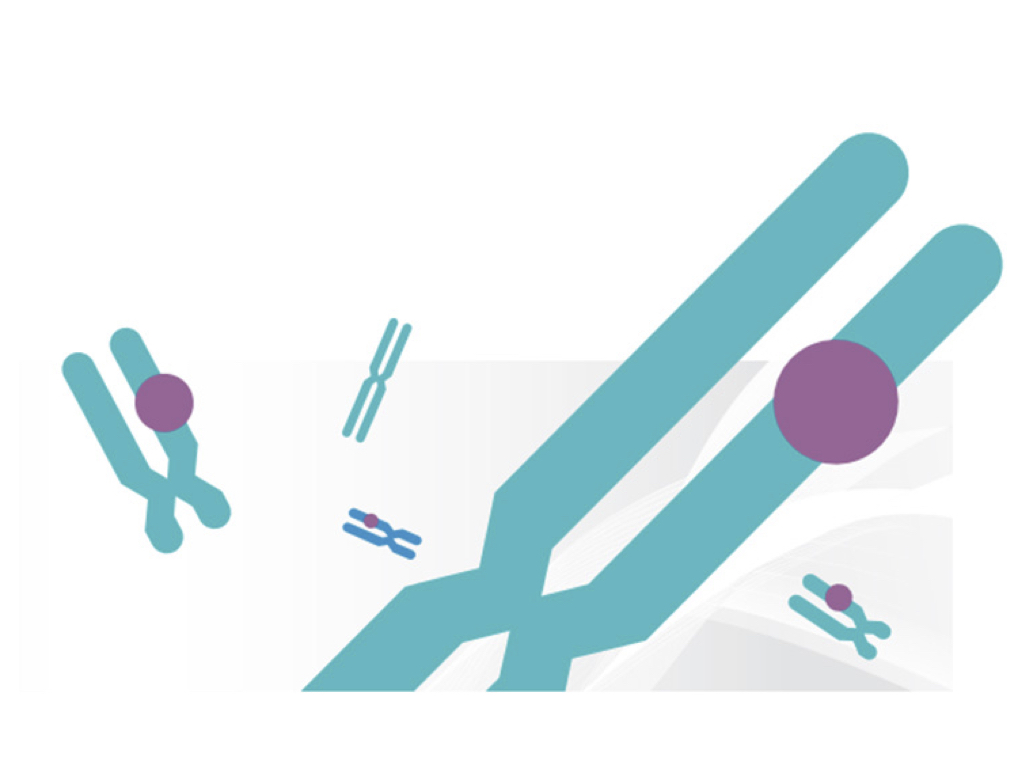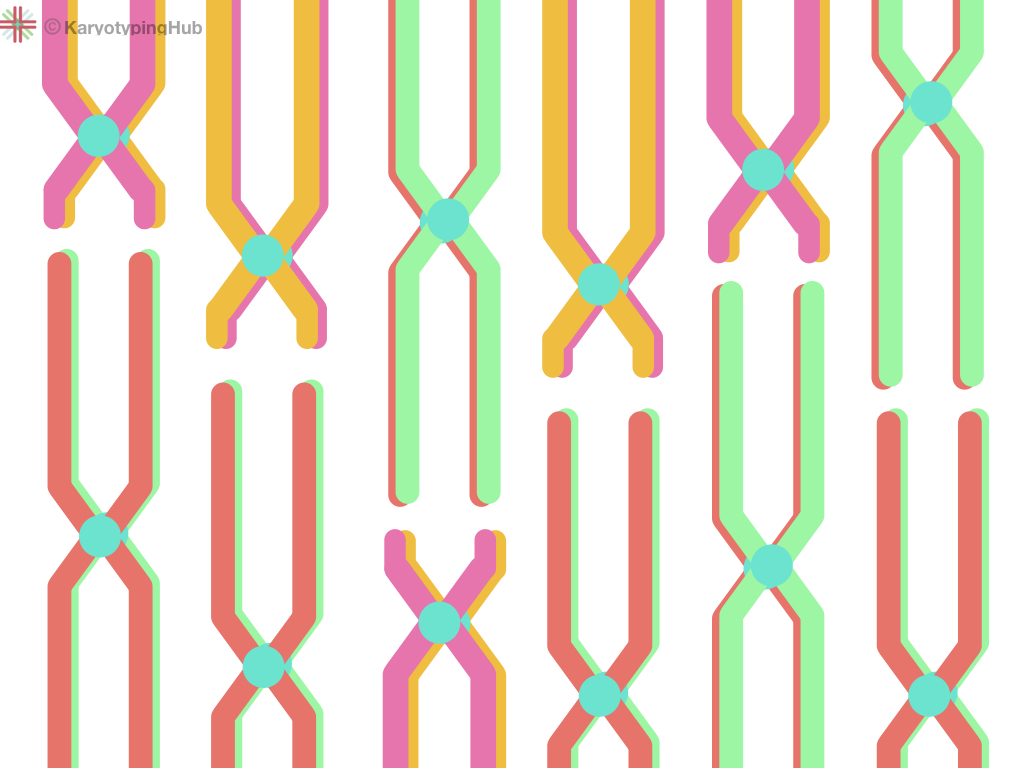Sodium heparin is the best anticoagulant agent that prevents coagulation of blood henceforth sodium heparin-containing tubes are commonly used for the sample collection for karyotyping.
A very important procedure in cytogenetics and genetics is sample collection. The quality of results relies on the quality and conditions of the sample. Biological sample collection required special treatment, chemicals and conditions. And therefore different containers, tubes are used for varieties of samples.
A tube used for biological sample collection especially for blood is commonly known as a “collection tube”.
Collecting samples for karyotyping or cytogenetic analysis needs a special setup and set of chemicals. Here in the present piece of content, I will explain to you the sample collection procedure, a type of tube used in the karyotyping and why only sodium heparin tubes are used in the karyotyping sample collection.
Read more: karyotyping- Step and procedure.
Why sodium heparin tubes are used in the sample collection for karyotyping?
Before answering this question, let me tell you that, what type of samples are required for cytogenetic studies.
Cytogenetic studies especially karyotyping need whole blood, amniotic fluid, chorionic villi, solid tissue, tumor or bone marrow. For routine analysis, the blood sample is considered while for prenatal studies, AF or CV samples are collected.
A blood sample of a fetus isn’t available for karyotyping in case of parental analysis that is why the amniotic fluid or chorionic fluid samples are taken.
Different testing procedures need different components of the sample, for example, in karyotyping we need to grow or culture cells in order to arrest them at metaphase so experts need living and dividing cells- the monocytes.
Why sodium heparin tubes are used in the sample collection for karyotyping?
Sodium heparin is an anticoagulant, prevents blood clotting much like the EDT and lithium heparin. Nonetheless, the EDTA tubes are not recommended for karyotyping sample collection.
Sodium heparin, lithium heparin and EDTA vials are common collection tubes used for collecting blood samples and are anticoagulant means prevent blood clotting.
Clotted blood can’t be cultured so only fresh blood or unclotted blood sample is required for PBLC. Note that the EDTA tubes are not used for this purpose, the reason is that it is a chelating agent and inhibits cell division process.
Ethylenediaminetetraacetic acid- EDTA prevents spindle fiber formation during cell division.
In the absence of spindles, the metaphase stage can’t be achieved which means cells can’t divide. Note that, only metaphase cells are advised for cell culture and chromosome analysis.
We know we need dividing cells to culture them, therefore if we use EDTA tubes, cells can’t grow or be cultured and we can’t get metaphase cells.
Contrary, sodium heparin is used as an anticoagulant that can’t affect cell division activities.
Henceforth, either sodium heparin or lithium heparin but not the EDTA tubes or sample collection containers are used for karyotyping sample collection.
Sodium heparin:
The chemical formula of sodium heparin is C26H41NO32S4 and the molecular weight of 1039.9 gm/mol. The chemical is commonly used in medical practice as an anticoagulant agent.
Read more: GTG-Banding (G-bands by Trypsin using Giemsa) for karyotyping.
Sample type of karyotyping:
Various samples types and sample collection tubes for them are enlisted here below,
Blood sample (karyotyping):
- Type of container: Sodium heparin (green cap) of lithium heparin
- Storage and transportation: room temperature or 4C temperature, within 24 hours.
- Volume: 5 to 7 ml
Amniotic fluid:
- Type of container: sterile universal container or in AF culture tube
- Storage and transportation: room temperature or 4C temperature, within 24 hours.
- Volume: 10 to 20 ml
Chorionic villi:
- Type of container: sterile universal container or CV culture tube
- Storage and transportation: room temperature or 4C temperature, within 24 hours.
- Volume: 5mg for cytogenetic investigation
Fetal tissues or POC:
- Type of container: Pediatric Lithium heparin (cord blood), tissue transport media (placenta, skin biopsy and organ tissues)
- Storage and transportation: room temperature or 4C temperature, within 24 hours.
- Volume: as per advised
Bone marrow aspirant:
- Type of container: bone marrow transport medium
- Storage and transportation: room temperature or 4C temperature, within 24 hours.
- Volume: depends on the availability of sample
Tumor biopsy:
- Type of container: in a universal container containing transport media
- Storage and transportation: room temperature or 4C temperature, within 24 hours.
- Volume: depends on the availability of sample
Interesting article: The Procedure of Fetal Karyotyping.
Criteria to collection sample:
Collecting samples for cytogenetic studies is a different procedure, we need as fresh as possible samples. The whole karyotyping process is based on cell culture, to arrest cells at metaphase where chromosomes are well separated.
So we need rapid dividing cells or sample type and hence the sample must be transferred to the testing facilities as soon as possible.
Usually, within 24 hours of sample collection. Though samples collected in 48 hours can be cultured as well, but experts can’t accept it. It is easy to culture cells collected freshly.
Here are the criteria for sample collection for karyotyping:
- Sample must be collected and transported within 24 hours to the testing facilities.
- Approximately 6 to 10 ml sample is collected.
- The sample should be stored and transported at only 4C temperature.
- Samples can’t be frozen.
- Samples are collected in sterile conditions.
- Samples are labeled correctly.
- Sample for karyotyping analysis is collected in green caped, sodium heparin tubes.
- Samples for DNA extraction and karyotying are collected in separate tubes of EDTA and sodium heparin, respectively.
Read more: In which conditions a Karyotyping or a Karyotype Test is preferred?
Conclusion:
Karyotyping requires special treatment of the sample. Around 2 to 5 am of whole blood sample is needed for PBLC- peripheral blood lymphocyte culture in which dividing lymphocytes are cultured.
A few drops of sample are added to the culture media in aseptic conditions and incubated as per the protocol. Keep in mind that the sample must be processed within 24 hours.



